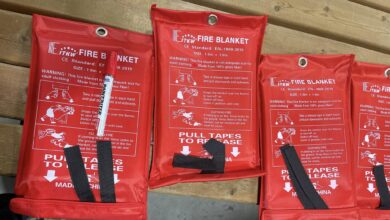
COVID-19 Weekly EPI Report – New COVID-19 Treatment Available
The oral antiviral Paxlovid continues to be available by prescription in Saskatchewan for treatment of COVID-19, if you test positive on a PCR or rapid antigen test and meet eligibility criteria.
Now, another option has been authorized by Health Canada. Remdesivir is an intravenous antiviral treatment for COVID-19. It stops the virus from multiplying in cells which can help a body to overcome the infection and reduce the likelihood that you will require hospitalization for COVID-19. While Saskatchewan has been providing this treatment in hospital, it will be available on an outpatient basis, requiring three consecutive days of intravenous treatment.
Currently, you are eligible if you have a positive COVID-19 test result and:
- Are immunocompromised or are 70 years and older with designated risk factors, regardless of vaccination status;
- Are 18 years of age and older who are not fully vaccinated (which is 14 days following the completion of a primary, two-dose vaccination series);
- Are not in hospital and/or require supplemental oxygen;
- Treatment needs to occur within seven days of a positive test and becoming symptomatic.
If you test positive on a PCR or rapid antigen test, you may be able to receive Paxlovid treatment to reduce the risk of severe COVID-19 outcomes. Paxlovid is an oral medication available by prescription, and should be considered for treatment before Remdesivir due to easier accessibility. Eligibility criteria includes being immunocompromised or having other medical conditions that put you at higher risk, or unvaccinated or under vaccinated. Treatment must be started within the first five days of symptom onset. More on Paxlovid eligibility is available at Saskatchewan.ca/covid-19.
If you meet these requirements for Paxlovid or Remdesivir, you may be referred for treatment. Call HealthLine 811 to speak with a clinician.
Treatment is No Substitute for Vaccination
While Saskatchewan supports antiviral treatments for those most at risk for severe illnesses, they are not a cure and do not prevent COVID-19 transmission.
Vaccination remains the best tool available to prevent hospitalizations and death due to COVID-19. Immunization including your primary, two doses series plus a booster does not offer absolute protection against COVID-19 but improves your body’s defense against the virus.
All Saskatchewan residents age five and older are eligible to be fully vaccinated, and residents age eighteen and older are eligible for third and fourth booster doses. For more information on the third and fourth dose eligibility, see Saskatchewan.ca/covid-19.
There are COVID-19 immunization appointments available through the Saskatchewan Health Authority in addition to those offered by pharmacies throughout the province. It is never too late to complete your vaccination series and get boosted, to protect yourself and reduce the pressure on acute care.
Stick it to COVID and book your immunization today.
Weekly COVID-19 Epi Report
Issued Thursdays, the Ministry of Health’s COVID-19 integrated epidemiology (epi) report utilizes multiple data sources and includes laboratory-confirmed cases, deaths, tests, vaccination information provincially and by zones, as well as hospital and ICU census trends and distribution of rapid antigen tests. The epi report this week looks at data from Sunday, April 10 to Saturday, April 16, 2022. The hospitalization data is a comparison from April 13 to 20, 2022.
The integrated epi report can be found online at saskatchewan.ca/COVID-19-cases.
Summary for the week of April 10 – 16, 2022
- 7,354 laboratory tests were performed in Saskatchewan, reflecting 6.1 tests performed per 1,000 population. The number of tests was lower than the number of tests in the previous week (7,996).
- Slightly more than one in nine laboratory tests were positive for a weekly test positivity of 11.7 per cent, which is lower compared to the previous week (13 per cent).
- 890 new cases were confirmed reflecting about 0.7 laboratory-confirmed cases per 1,000 population.
- The number of new laboratory-confirmed cases was lower than the number of new cases in the previous week (1,050).
- There were 539 new lineage results reported this week. Of the 539 variants of concern identified by whole genome sequencing, 100 per cent were Omicron.
- The Omicron BA.2 sublineage accounted for 61.4 per cent of the variants of concern reported this week, which was higher compared to the previous week.
- There were 22 newly-reported COVID-19 deaths, 10 per cent higher than in the previous week (20).
- During the two months period from February 13 to April 16, 2022, the risk of hospitalization, ICU admission and death was five, nine and seven times higher respectively among unvaccinated individuals compared to those vaccinated with three doses.
- There were 39.5 COVID-like illness patients per 1,000 emergency department visits which is higher than the average weekly rate in the previous six weeks (34.2 per week/1,000 visits).
- 18 confirmed COVID-19 outbreaks in long-term care and care home settings were reported this week.
- As of April 16, 2022, of the population five years and older, 85.8 per cent received at least one dose of a two-dose COVID-19 vaccine and 80.8 per cent completed a series.
- Among the population 18 years and older, 51.7 per cent had received at least one booster vaccination.
- As of the week of April 18, there have been 258 Paxlovid prescriptions provided.
- More than 19.7 million rapid antigen test kits have been distributed in the province. They are easily accessible at more than 600 locations.








































